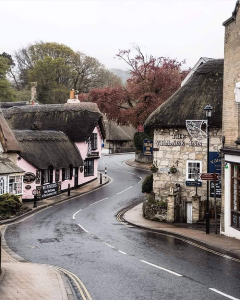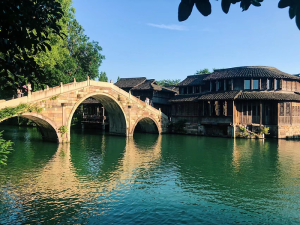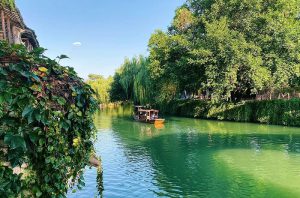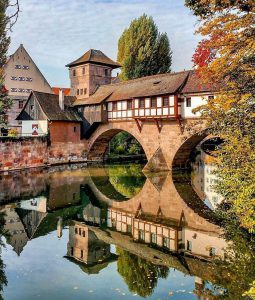High Court Malaya, Kuala Lumpur Harun Hashim J [Tax Appeal No. A3/83] 6 February 1987
JUDGMENT
Harun J: This is an appeal from the Special Commissioners of Income Tax against their decision to confirm the additional assessment raised by the Revenue in respect of income tax for the year of assessment 1980.
The agreed statement of facts before the Special Commissioners were
- The appellant company was incorporated on 29 November 1963.
- On 26 February 1964, the appellant acquired a piece of land (“the said property”) comprising 19a. 3r. 38p. known as Lot No. 1305 in the mukim of Setapak in the state of Selangor under C.T. No. 12361 from the estate of Loke Yew (residency) trust.
- The said property was the sole asset of the appellant since its acquisition.
- On 17 November 1978, the appellant sold the said property to Messrs. Low Keng Huat and Wong Bin Chen for the sum of RM591,697.
- The appellant was assessed to real property gains tax on the gain, which assessment was paid to the respondent.
- The respondent subsequently, on the 5th day of July 1980, raised an assessment in the sum of RM179,925.60 in respect of the gains arising from the said property in respect of income tax.
- The gain from the asset’s sale is in the sum of RM403,287.
- The appellant contends that the said gain is a capital receipt and is not assessable to income tax but to real property gains tax under s. 3 of the Real Property Gains Tax Act 1976 as originally assessed by the respondent.
- The respondent contends that the said gain is income assessable to tax under s. 4 of the Income Tax Act 1967.
- The question for the determination of the Special Commissioners of Income Tax is whether:
- The said gain is a capital receipt, not assessable to tax under the Income Tax Act 1967, as is contended by the appellant; or
- An income assessable to tax under the Income Tax Act 1967, as is contended by the respondent.

Loke Yew was a land owner.
On his death in 1917, the Loke Yew residency trust (the trust) was established.
In 1926 part of the trust lands of 1905 acres of rubber and 458 acres of mining land were vested in Hawthornden Rubber Estate Ltd. (Hawthornden).
The trust retained the land on which the family mansion stood (lot 1305) and the family burial ground.
Access to Lot 1305 was through Hawthornden.
When Hawthornden considered the possibility of converting part of their property into a housing estate, it mistakenly included Lot 1305.

When the error was discovered in 1963, the descendants of Loke Yew formed the appellant company, and the trust was transferred to the appellant Lot 1305 for a consideration of RM162,752.80 in 1964.
What weighed heavily with the Special Commissioners was the fact that at the time of the sale of Lot 1305 in 1978, the directors of the appellant and Hawthornden were the same persons.
Hence the inference of the Special Commissioners from these facts was as follows:-
The formation of the appellant (as a limited company) was a more advantageous means of developing the land as a housing estate (and later on, of hoarding it) as it was a limited company and, furthermore, it shared a common board of directors with Hawthornden.

The Special Commissioners found as a fact (erroneously) on p. 26 of the case stated that “the appellant was a wholly owned subsidiary of Hawthornden”.
The result was that in determining whether Lot 1305 was an investment or stock-in-trade, the Special Commissioners were greatly influenced by what Hawthornden was thinking and doing, which were wholly imputed to the appellant.
It is trite law that these two companies are separate legal entities.
At the commencement of the hearing, the learned Federal Counsel who appeared for the Collector indicated (quite properly) that he was not supporting the finding of the Special Commissioners that the appellant was connected to or related with Hawthornden.
Shorn off Hawthornden, the primary facts as found by the Special Commissioners are-

- The nature of the land, i.e., 19 acres, “crowned by a hill on which stood the ruins of the former Loke Yew family mansion which still remain” adjacent to the Loke Yew family burial ground.
- The incorporation of the appellant in November 1963 and the acquisition of the land in February 1964.
- The land was the only asset of the appellant, and its subsequent sale in November 1978 was an isolated transaction and, in fact, the only transaction by the appellant.
- The appellant was assessed to Real Property Gains Tax which was paid to the respondent.
- The proceeds of the sale of the land were entered and recorded in the appellant’s balance sheets for 1979 and 1980 as being capital reserves and also described as an extraordinary item in the profit and loss account for the same years.
- The appellant did no business, contemplated but took no step to develop the land or enhance its value.
Memorandum of Association The Special Commissioners appear to have placed undue reliance on Clause 3 of the memorandum of association of the appellant viz:
3 (1) To purchase, take on lease or in exchange or otherwise acquire any lands and buildings in the states of Malaya or elsewhere and any estate or interest in and any rights connected with any such lands and buildings.
(2) To develop and turn to account land acquired by the company or in which the company is interested and in particular by laying out and preparing the same for building purposes, constructing, altering, pulling down decorating, maintaining furnishing fitting up and improving buildings and by planning paving draining farming cultivating letting on building lease or building agreement and by advancing money to and entering into contracts and arrangements of all kinds with builders tenants purchasers and others.

The proposed objects of a company are relevant when considering the transactions in which the company is found to have been engaged.
It does not, however, follow that just because the company has powers to do certain things, anything done by the company must necessarily be carrying on the business of the professed objects of the company: see the Land Revenue Commissioners v. West-leigh Estates Co. [1924] 1 AC 681.
Indeed, a company actively engaged in trade is also entitled to hold investments, so one must distinguish investment from stock-in-trade: Simmons v. IRC [1980] 1 WLR 1197.
A good illustration of the distinction between investment and trading is to be found in Phillips v. West 38 TC 203, where it was held that whilst the 287 properties that the appellant built to sell ultimately were the stock-in-trade of the builder, the 2,208 houses built to let were investments and any surplus arising from their sale was therefore not liable to tax; and that the appellant was not carrying on the business of property dealing.
Intention

A good test to determine whether the property held is an investment or stock-in-trade is to establish the appellant’s intention at the time of acquisition of the property.
Why did they buy it, and for what purpose?
Here the Special Commissioners inferred from the facts before them that:
- before World War II, the object of the trust was to retain Bukit Yew (Lot 1305) as part of the family inheritance and for sentimental reasons.
- in August 1963, it was discovered that Bukit Yew was not part of Hawthornden but was owned by the trust, and Hawthornden decided to approach the trust to purchase Bukit Yew.

The facts, however, show that the trustees, rather than selling the land to Hawthornden, sold it to the appellant, who in turn considered arranging for a survey, valuation and prospective conversion.
In June 1965, the Government gave notice of the intended acquisition of the land but, in March 1966, withdrew the notice.
Nothing was done on the land subsequently until its sale in 1978 following an offer for its purchase. These are facts as found by the Special Commissioners.
What, then, is the appellant’s intention in acquiring the land?
True, they considered the possibility of developing it, but the fact remains that they did not pursue that possibility.

The Special Commissioners, however, found that the reason they did not develop it was because of the threat of acquisition by the Government.
That threat was very short-lived and occurred soon after the appellant purchased the land. Nothing could stop them from pursuing the professed objectives from 1966 onwards.
The Special Commissioners found that the other reason why they did not pursue the objective was that the development of the land was to be made jointly with Hawthornden.
This, of course, ignores their earlier finding that Hawthornden had attempted to acquire the land from the trustees but was turned down. If the land were to be developed jointly, it would have been simpler for the trustees to sell the land to Hawthornden.
A fair inference is that on discovering that the land did not belong to Hawthornden, the appellant decided to keep it to themselves. If there was going to be any development, it was going to be independent of Hawthornden.

Another finding of the Special Commissioners was that the land was not developed because Hawthornden had difficulty obtaining piped water supply and road access.
These were difficulties of Hawthornden, not the appellant.
It is clear that the Special Commissioners, in determining the appellant’s intention, did not treat the appellant as a separate legal entity, and its findings of facts and inferences, therefore, were based on the motives and actions of Hawthornden.
Without Hawthornden, the facts are that the appellant bought the land, did nothing and eventually sold it 14 years later.

If there was any change of intention at all, the descendants of Loke Yew finally decided after 14 years that it was no longer worthy of keeping the land as a heritage from their ancestors.
It is, however, not fair to conclude from this, as the Special Commissioners did, that “the appellant retained the land to hoard it up in anticipation of a rise in value”.
True, the sale realised a price difference of RM428,944, but this amount must be balanced with a purchase price of RM162,752.80, which they had paid for 14 years previously and during which time the land brought them no income at all.
The amount realised, in fact, represents no more than the recovery of capital with compound interest at 9% over a period of more than 14 years between purchase and sale.
Throughout the statement of the case, the Special Commissioners appear to have overemphasised this price difference and labelled it as profit to support their conviction of land dealing admitting of no other inference.
Accounting

Finally, the Special Commissioners laid much stress on the manner the Taxpayers’ accounts were kept.
How a Company keeps its accounts may be evidence of the Company’s intention.
Still, such evidence must be weighed against other evidence to decide the nature of the transaction: Shadford (H.M. Inspector of Taxes) v. H. Fairweather [1966] 43 TC 291. Here during each year from 1966 to 1977, the directors’ report stated:
The Company has not yet commenced trading, and no contingent liabilities were undertaken by the Company in the period covered by the Profit and Loss Account.
And for 1978, the directors’ report stated: Negotiations for the sale of Lot 1305 in the Mukim of Setapak at a price of RM591,697 continue, and it is anticipated that these should be satisfactorily concluded very soon.

In the 1979 accounts, the proceeds of this sale were placed on `capital reverse‘.
However, in the same report, the directors stated that the principal activity of the Company consists of land development and transactions involving land.
The Special Commissioners held that this statement is an admission by the taxpayer of the true nature of the transaction. That was why the accountants did not describe the land as a “fixed asset” but as “land and development at cost“.
They were also not impressed by the provision for capital gains tax instead of income tax.
However, their finding contrasts with their other finding on p. 11 para xlii- the only business carried on by the appellant was the acquisition and sale of Bukit Yew.

The Special Commissioners found that the auditors of the appellant “reflected their uncertainty as to the nature of the asset by describing it not as a fixed asset but as “land & development at cost” and the appellant’s own uncertainty as to the nature of the asset, the proceeds of the sale were placed by the appellant in a fixed deposit account with the bank and as a result, interest was earned for years ending 31 December 1979 and 31 December 1980.”
The Special Commissioners made no mention of the fact that the auditors were complying with the accounting practice of the Malaysian association of certified public accountants, in respect of accounting description of land matters, in particular, to differentiate between lands held for long-term investment and lands held for development and resale.
The fact that the sale proceeds were placed on fixed bank deposits (which naturally earn interest) does not necessarily mean uncertainty of the nature of the asset.
The Issue The question before the Special Commissioners was whether the transaction, viz. the purchase of sale of Lot 1305 by the appellant, constituted an adventure in the nature of trade, the proceeds of which are subject to payment of income tax under the Income Tax Act 1967, or whether the transaction was the realisation of a capital asset the proceeds of which are subject to payment of real property gains tax under the Real Property Gains Tax Act 1976.
The Special Commissioners held that the transaction was an adventure in trade, dismissed the appeal and confirmed the assessment.
On the facts as found by the Special Commissioners, the decision cannot be upheld for the following reasons-

- The Special Commissioners have mixed findings of facts with inferences.
- The finding that the appellant company is a subsidiary of Hawthorden is clearly erroneous.
- The deliberations of the board of directors of Hawthornden before the establishment of the appellant company were wrongly imputed to the appellant.
- In deciding the appellant’s intention concerning the nature of the transaction, the Special Commissioners relied heavily and erroneously on the intentions of Hawthornden.
- If the evidence concerning Hawthornden was deleted from the record, there was little or no evidence to support the finding.
- There was no evidence that the appellant was engaged in trading as professed in its memorandum of association.
- The fact that the appellant merely considered but did not proceed with developing the land should not have been held to be a change of intention. Not should the fact of the intended land acquisition by the Government (which was in any event short-lived) be taken as a relevant factor ascribed to change of intention.
- The fact that the land was held for more than 14 years undeveloped and earning no income should have tilted the scales in favour of the appellant.
- The circumstances of the purchase of the land, its subsequent sale and the accounts do not show conclusively that this sale transaction of the appellant was in the nature of an adventure in trade.
Concerning the Special Commissioners, their exposition of the law on the issues before them is correct. Still, their application of the law and the authorities to the facts are erroneous due to their wrong findings of facts.
Indeed if the Special Commissioners had not deviated from the agreed statement of facts, they would not have concluded that they did.
I would accordingly allow the appeal and set aside the deciding order of the Special Commissioners, with costs here and below.

Our website's articles, templates, and material are solely for reference. Although we make every effort to keep the information up to date and accurate, we make no representations or warranties of any kind, either express or implied, regarding the website or the information, articles, templates, or related graphics that are contained on the website in terms of its completeness, accuracy, reliability, suitability, or availability. Therefore, any reliance on such information is strictly at your own risk.
Keep in touch with us so that you can receive timely updates |
要获得即时更新,请与我们保持联系
1. Website ✍️ https://www.ccs-co.com/ 2. Telegram ✍️ http://bit.ly/YourAuditor 3. Facebook ✍
- https://www.facebook.com/YourHRAdvisory/?ref=pages_you_manage
- https://www.facebook.com/YourAuditor/?ref=pages_you_manage
4. Blog ✍ https://lnkd.in/e-Pu8_G 5. Google ✍ https://lnkd.in/ehZE6mxy
6. LinkedIn ✍ https://www.linkedin.com/company/74734209/admin/






